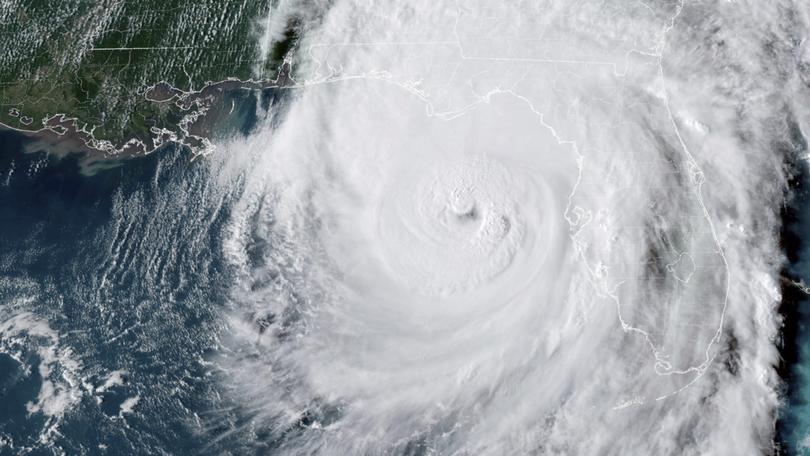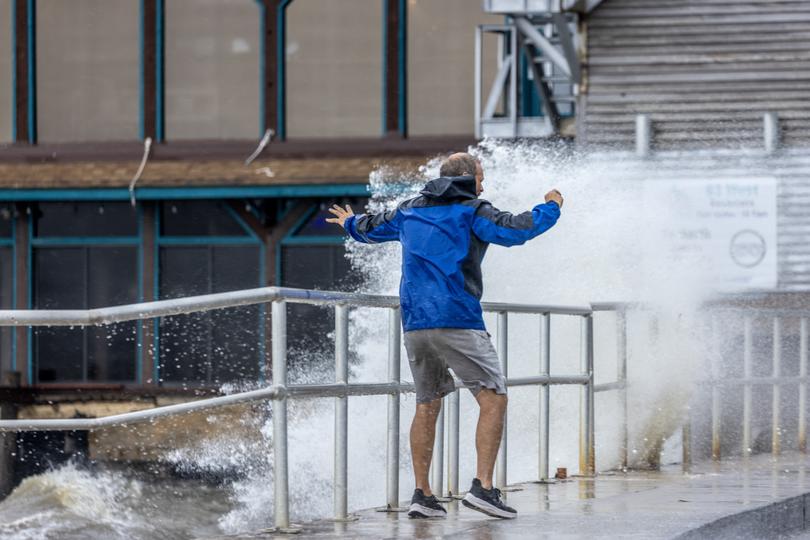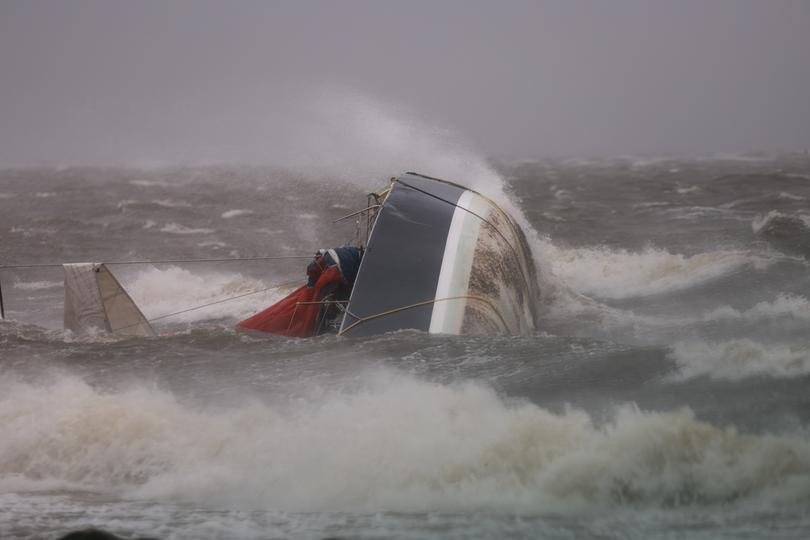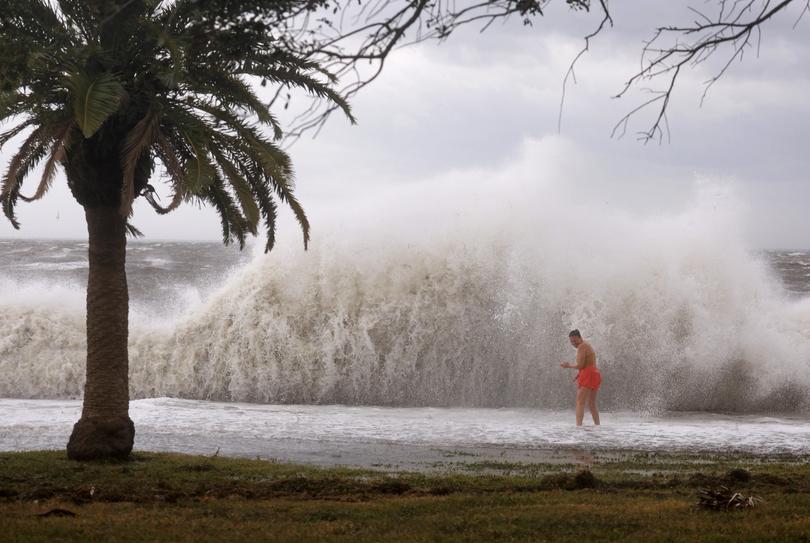Hurricane Helene upgraded to category four as the ‘unsurvivable’ storm nears the Florida Coast
“Write your name, birthday, and important information on your arm in permanent marker so that you can be identified and family notified,” the sheriff’s office warned as ‘unsurvivable’ Hurricane Helene looms.

Helene has strengthened into a category four hurricane ahead of its expected landfall on Florida’s northwest coast, with forecasters warning the enormous storm could create a “nightmare” surge in coastal areas and bring dangerous winds and rain across much of the southeastern US.
Category four hurricanes have sustained winds over 210 km/h that can severely damage homes, snap trees and down power lines.
Strong winds have already cut power to over 250,000 homes and businesses in Florida, according to the tracking site poweroutage.us.
Sign up to The Nightly's newsletters.
Get the first look at the digital newspaper, curated daily stories and breaking headlines delivered to your inbox.
By continuing you agree to our Terms and Privacy Policy.The hurricane was about 195 kilometres west of Tampa and had sustained winds of 215 km/h, according to the US National Hurricane Center.
Life-threatening storm surges of up to six metres were expected in the Big Bend area of Florida.
Hurricane warnings and flash flood warnings extended far beyond the coast up into northern Georgia and western North Carolina.
The governors of Florida, Georgia, the Carolinas and Virginia have all declared emergencies in their states.
The storm’s wrath was starting to be felt on Thursday afternoon, with water lapping over a road on the northern tip of Siesta Key near Sarasota and covering some intersections in St Pete Beach along Florida’s Gulf Coast.
Beyond Florida, up to 25 centimetres of rain has fallen in the North Carolina mountains, with up to 36 centimetres more possible before the deluge ends, setting the stage for flooding that forecasters warned could be worse than anything seen in the past century.

Florida Governor Ron DeSantis said Thursday morning that models suggest Helene will make landfall further east than earlier forecast, lessening the chances for a direct hit on the capital city of Tallahassee, whose metro area has a population of around 395,000.
The shift has the storm aimed squarely at the sparsely-populated Big Bend area, home to fishing villages and vacation hideaways where Florida’s Panhandle and peninsula meet.
“Please write your name, birthday, and important information on your arm or leg in a PERMANENT MARKER so that you can be identified and family notified,” the sheriff’s office in mostly rural Taylor County warned those who chose not to evacuate in a Facebook post, the dire advice similar to what other officials have dolled out during past hurricanes.

Many were heeding the mandatory evacuation orders that stretched from the Panhandle south along the Gulf Coast in low-lying areas around Tallahassee, Gainesville, Cedar Key, Lake City, Tampa and Sarasota.
Along Florida’s Gulf Coast, school districts and multiple universities cancelled classes. Airports in Tampa, Tallahassee and Clearwater were closed on Thursday, while cancellations were widespread elsewhere in the state and beyond.
Helene is forecast to be one of the largest storms in breadth in years to hit the region, said Colorado State University hurricane researcher Phil Klotzbach.
He said since 1988, only three Gulf hurricanes were bigger than Helene’s predicted size: 2017’s Irma, 2005’s Wilma and 1995’s Opal.
Helene is the eighth named storm of the Atlantic hurricane season, which began June 1.
The National Oceanic and Atmospheric Administration has predicted an above-average Atlantic hurricane season this year because of record-warm ocean temperatures.

